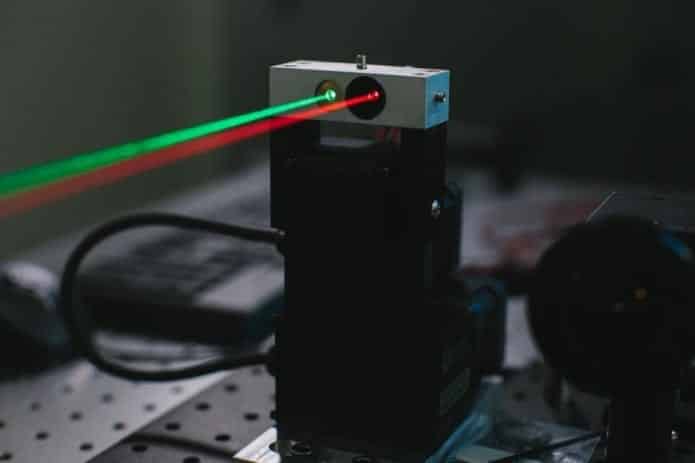Mark Zuckerberg shows off Facebook’s internet lasers that would connect remote areas to the Internet
The social networking giant Facebook hopes to expand Internet access to developing countries as well as throughout the world by using lasers.
Mark Zuckerberg, Founder and CEO of Facebook in a post has disclosed that Facebook’s Connectivity Lab is making a laser communications system that can beam data from the sky into communities to provide cheaper and fast Internet.
According to Zuckerberg “This will dramatically increase the speed of sending data over long distances.”
In his post, Mark points out that “Normally you wouldn’t be able to see the actual beams, but for this demonstration we made them visible.” The reason that you cannot view the actual beams is due to the fact that lasers for communications are not in the visible range. The visible range includes wavelengths between 0.4 to 0.7 microns. Wavelengths above the visible range are in the microwave and Infrared range and is not visible to the human eye. Facebook Labs made use of visible lasers for the demonstration.
Connectivity Lab is working hard on building drones. While announcing its drone program, Facebook also released a whitepaper giving a plan to use Free Space Optics to distribute a concentrated laser beam to aid in connectivity.
Facebook wrote “the lasers used in FSO systems provide extremely high bandwidths and capacity, on par with terrestrial fiber optic networks,” but also noted the lasers need to be precisely calibrated and “require line of sight between both ends of the laser link, meaning that they don’t work through clouds and are very vulnerable to bad weather conditions.”
Developing the laser system is part of the company’s Internet.org initiative to provide free basic Internet service to some of the poorest countries. However, this year these efforts faced criticism for threatening net neutrality, a principle to provide open and free Internet, as the company restricts the free Web service to certain websites such as Wikipedia and Facebook.
In March, the company during its annual developer conference announced that Facebook is also testing a solar-powered drone dubbed Aquila as part of Internet.org. Till now, not all of Facebook’s attempts to develop technology to deliver Internet access have gone according to the plan. In June, The Information had reported that the company reportedly discarded plans to build and launch a satellite for as much as $1 billion mentioning a person with direct knowledge of the project and a person briefed about it.

